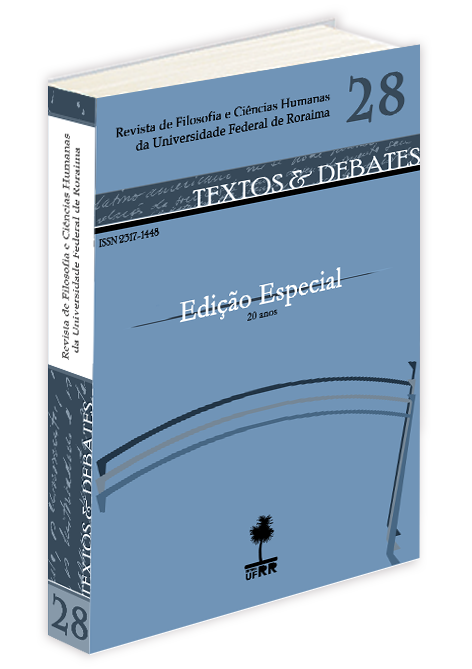The sociocultural formation of Boa Vista – Roraima and the Macushi and Wapishana people in the city: historical process and sense of belonging
DOI:
https://doi.org/10.18227/2317-1448ted.v3i28.3387Palavras-chave:
Indigenous people, Culture, CityResumo
This article has as main theme the presence of the indigenous peoples Macushi and Wapishana at the Capital of Roraima, Brazil, and it is based on the critical reading of historiography produced from the eighteenth century about the occupation of the State. This historiographical return aims to understand the socio-political relations, conflicts and other factors that underlie the absence of such indigenous peoples in the formation history of the city, and the construction of socio-cultural demands of Macushi and Wapishana residing in the urban area of Boa Vista.Downloads
Publicado
Como Citar
Edição
Seção
Licença
Copyright (c) 2016 Textos e Debates

Este trabalho está licenciado sob uma licença Creative Commons Attribution-NonCommercial-NoDerivatives 4.0 International License.
Os direitos autorais para os artigos publicados são do autor, com direitos do periódico sobre a primeira publicação. Os autores somente poderão utilizar os mesmos trabalhos em outras publicações indicando claramente este periódico como o meio da publicação original. Permite-se o uso gratuito dos artigos em aplicações educacionais e científicas, desde que citada a fonte.

Este obra está licenciado com uma Licença Creative Commons Atribuição 4.0 Internacional.





